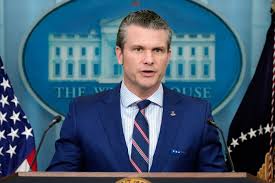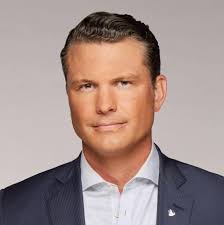Francis Tuschek
On Wednesday, US Secretary of Defense Pete Hegseth declared that the ongoing war between Ukraine and Russia “must end” and expressed skepticism about Ukraine’s potential NATO membership. He indicated that the Biden administration’s focus would shift towards securing American borders and addressing threats from China, rather than prioritizing security in Europe and Ukraine.
During his address at a meeting of the Ukraine Defense Contact Group, Hegseth emphasized that European forces should primarily handle the security of a post-war Ukraine, clarifying that US troops would not be involved. He stated, “The United States does not believe that NATO membership for Ukraine is a realistic outcome of a negotiated settlement,” and insisted that any security guarantees for Ukraine must involve capable troops from Europe and beyond.
Hegseth also dismissed the idea of restoring Ukraine’s borders to their pre-2014 state, prior to Russia’s annexation of Crimea and the conflict in eastern Ukraine, labeling that goal as “unrealistic.” This sentiment aligns with views shared by many NATO allies, though Ukrainian President Volodymyr Zelensky has consistently argued that NATO membership is essential for deterring future Russian aggression.
The timing of Hegseth’s remarks coincided with President Donald Trump’s announcement of a conversation with Russian President Vladimir Putin, where they agreed to collaborate closely on ending the war in Ukraine. Trump indicated he would inform Zelensky about their discussion, and the Kremlin extended an invitation for Trump to visit Moscow, potentially marking the first visit by a US president since 2013.
In a follow-up statement, Trump echoed Hegseth’s sentiment, stating that NATO membership for Ukraine is “not practical.” He noted the longstanding resistance from Russia regarding Ukraine’s NATO ambitions, suggesting that the current stance is consistent with historical views.
A European defense official commented that while many NATO members privately doubt Ukraine’s NATO prospects due to political realities, they tend to refrain from public statements that could embolden Russia. Former Biden administration officials criticized Hegseth’s comments, arguing that they relinquished a critical negotiating leverage before discussions even commenced.
Additionally, Hegseth did not announce any new US aid for Ukraine, reiterating that current strategic realities necessitate a shift in focus away from European security. NATO and the EU had anticipated this pivot, having begun to establish their own mechanisms to coordinate military assistance for Ukraine in light of the anticipated reduction in US involvement.



